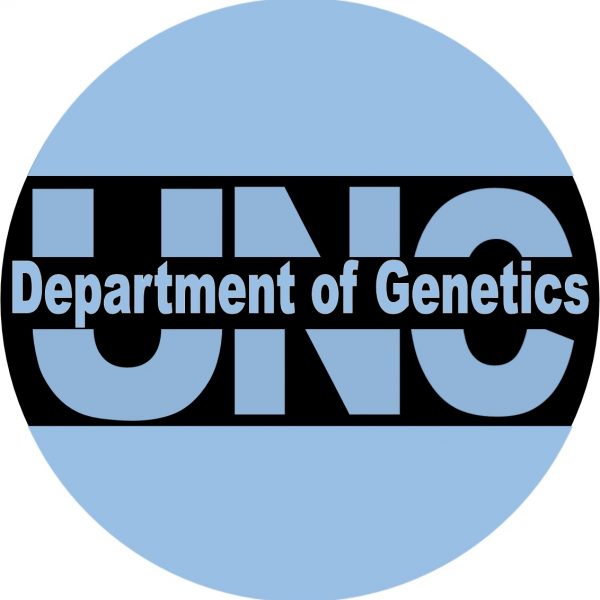Research Interests
Key words: chromatin and gene regulation, complex traits, inflammatory bowel disease, toxicogenomics, computational biology, single-cell genomics
Chromatin and Gene Regulation
Chromosomes are compacted into increasingly complex chromatin structures within eukaryotic nuclei. High-throughput sequence-based assays have been developed to identify regions of nucleosome-depleted open chromatin that mark all types of regulatory elements genome-wide in tissues and cell-types. The computational integration of these data with related gene expression, transcription factor binding, and epigenetic data provide a more complete picture of the complex process of gene transcription and regulation. With these data, we are also investigating the effects of genetic variation on regulation, as can been seen through allelic imbalance in signal from chromatin and transcription factor data, as well as in quantitative trait loci (QTL)-based analyses of these data across individuals.
Inflammatory Bowel Disease
Inflammatory bowel disease (IBD), primarily consisting of Crohn’s disease and ulcerative colitis, is the result of an inappropriate immune response to the intestinal microbiota in a genetically susceptible individual. We have partnered with Dr. Shehzad Sheikh (Dept of Medicine, CGIBD) and Dr. Praveen Sethupathy (Cornell Univ) to uncover molecular determinants of IBD disease phenotypes. In particular, we hypothesize that changes in gene expression profiles mediated by an altered chromatin landscape in key intestinal cell types such as macrophages, in part influenced by the host genetic background, are significantly contributing to aberrant intestinal inflammation. Using both human tissue and mouse models, we seek to identify where chromatin is altered, the impacts on gene expression, and how these are driven by genetic variation in affected individuals.
Environmental Toxicogenomics
Exposure to naturally occurring inhalational toxicants can result in serious health challenges. In particular, exposure to high levels of ozone can trigger or exacerbate serious medical conditions such as asthma and COPD. We hypothesize that ozone exposure can alter normal cellular function through changes to the chromatin architecture and transcriptional profiles in tissues contributing to the onset of health complications. In collaboration with Dr. Samir Kelada (Dept of Genetics), we are investigating the molecular effects of ozone exposure in lungs of genetically diverse mice within the Collaborative Cross mouse resource. Better understanding these effects in mice will provide clues as to how ozone is affecting humans.
Mentor Training:
- Bias 101
- Center for Faculty Excellence Mentoring Workshop
- Culturally Aware Mentoring (CAM) Workshop
- Faculty Mentoring Workshop for Biomedical Researchers
Training Program Affiliations:
- Bioinformatics and Computational Biology
Publications
Lab Members
- Satyaki Roy, Postdoctoral Fellow Email
- Meaghan Kennedy, Graduate Student Email
- Nina Nishiyama, Graduate Student Email
- Michelle Hoffner O’Connor (with Shehzad Sheikh), Graduate Student Email
- Ana Berglind (with Shehzad Sheikh), Graduate Student Email
Terry Furey in UNC Genetics News

March 3, 2024
Department of Genetics Publications for February 18th – March 2nd, 2024
Department of Genetics faculty, postdocs, students and collaborators published 11 papers during February 18th - March 2nd 2024.

February 19, 2024
Department of Genetics Publications for February 4th – 17th, 2024
Department of Genetics faculty, postdocs, students and collaborators published 12 papers during February 4th - 17th 2024.

February 15, 2024
Drs. Terry Furey and Shehzad Sheikh Awarded New R01 Grant from NIDDK
Terry Furey, PhD (Professor, Genetics and Biology) and Shehzad Sheikh, MD, PhD (Professor, Medicine and Genetics) were awarded a new R01 grant from NIDDK titled “Multi-omic characterization of genetic variants in IBD risk loci”.

February 5, 2024
Department of Genetics Publications for January 21st – February 3rd 2024
Department of Genetics faculty, postdocs, students and collaborators published 9 papers during January 21st - February 3rd 2024.

December 4, 2023
Department of Genetics Publications for November 19th – December 2nd, 2023
Department of Genetics faculty, postdocs, students and collaborators published 18 papers during November 19th - December 2nd 2023.

April 5, 2023
Sheikh and Furey Awarded New R01 from NIDDK
Shezhad Sheikh, MD, PhD (Associate Professor, Medicine and Genetics) and Terry Furey, PhD (Professor, Genetics and Biology) received a new R01 grant from the National Institute of Diabetes, Digestive, and Kidney Diseases (NIDDK) for their project titled “High throughput functional studies of IBD-associated GWAS variants”.

February 13, 2023
Department of Genetics Publications for January 29th – February 11th, 2023
Department of Genetics faculty, postdocs, students and collaborators published 7 papers during January 29th – February 11th, 2023.

November 20, 2022
Department of Genetics Publications for November 6th – 19th, 2022
Department of Genetics faculty, postdocs, students and collaborators published 11 papers during November 6th – 19th, 2022.

April 25, 2022
Department of Genetics Publications April 10th – 23rd, 2022
Department of Genetics faculty, postdocs, students and collaborators published 18 papers during April 10th – 23rd, 2022.

April 21, 2022
Kelada and Mohlke awarded 5-year R01 from NIEHS
Dr. Samir Kelada (Associate Professor, Genetics) and Dr. Karen Mohlke (Professor, Genetics) were awarded a 5 year R01 from the National Institute of Environmental Health Sciences (NIEHS) titled “Regulatory Genomics of Ozone Air Pollution Response in Vitro and In Vivo”.

